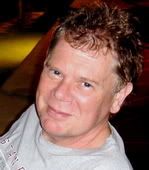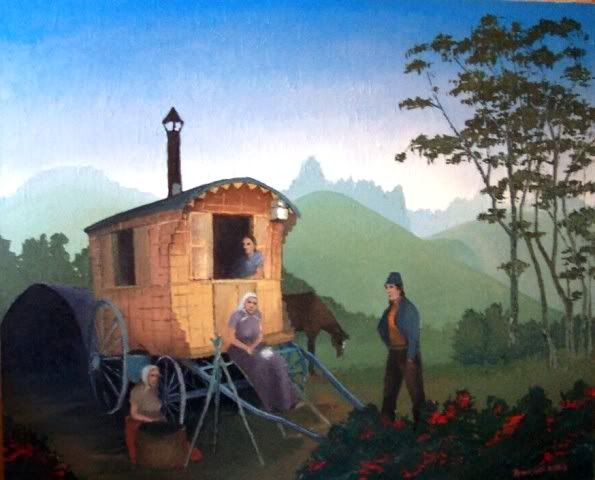
Maybe it was the Gypsy blood that kicked in when I hit my teens. Until I was twelve years old I would never have dreamt of putting on a magic show. I was having way too much fun presenting my own, highly involved, one-man shows. I didn’t have huge audiences just family, friends and the occasional major production for my class at school. At the time these shows seemed wildly sophisticated looking back I suppose they weren’t. Though with a true performers ability to rewrite the past, there is still a part of my brain that believes they were. My shows ranged from theatrical parodies such as my extremely well received “East Side Story” to cutting edge productions like the one where two other kids walked around me in clockwise and anticlockwise ellipses. I had some theory about atoms circling and making conversation. Years later I found a book in our attic written by an aged relative Henry Lewin where he discussed the cognitive and emotional qualities of the sub-atomic. It was pretty racy intellectual stuff for the 1920’s, and much more in vogue today. Without a drop of Jewish blood in him Henry was also a proud English Israelite and fully believed the English were the missing tribe of Judah. I later revisited this theory and invented a family tree descended from the Samsonites. The Samsonites were a small tribe in the Middle East who wandered in the desert for many years with very little food or water but wonderful luggage.
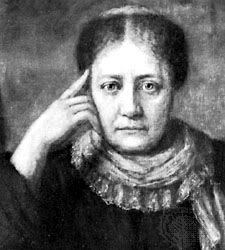 I suspect that Henry Lewin was a deeply influenced by Theosophy and the works of Madam Blavatsky.
I suspect that Henry Lewin was a deeply influenced by Theosophy and the works of Madam Blavatsky.I was much more interested in theatre and movies then than I was in magic. In fact I still am. Living so close to London City it was possible to catch many matinees and shows in the West End theatres of London. My mother always considered it just as good for my education to attend plays or movies rather than just attend school like other kids. I certainly never tried to alter her ideas and while it left great hulking gaps in my education it exposed me to sights and sounds that have remained vivid right up until this day.
I have soaring theatrical memories such as watching “Fiddler on the Roof” when it was a new musical throbbing with passion and not a twentieth generation hand me down. Some of my theatrical joys were subtler and only registered their treasures when reviewed from the future. Among these pleasures was seeing Barry Humphries play Mr. Sowerberry the undertaker in Lionel Bart’s “Oliver!”
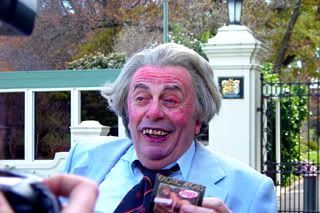 For those of us who hadn’t grown up in, Australia this was our first chance to observe Dame Edna Everage, Les Patterson and the other members of the Humphries Conglomerate.
For those of us who hadn’t grown up in, Australia this was our first chance to observe Dame Edna Everage, Les Patterson and the other members of the Humphries Conglomerate.My first hero was Anthony Newley, another member of the elite team that did for theater in the swinging sixties what the Beatles and Stones did for music. The Cockney chic and cheek that Newley and Bart brought to musical theater with shows such as; “Stop the World--I want to get off!” “Oliver”, “The Roar of the Greasepaint—The Smell of the Crowd” “Blitz!” and even the highly maligned “Twang” were a breath of fresh air. Collectively and creatively they removed the same cobwebs that Harold Pinter, Keith Waterhouse, Alan Bennett and John Osborne dispatched from the floorboards of the non-musical theatre. They shared the services of a brilliant young scenic designer Sean Kenney. Wild Irish and a natural maverick it was Kenney who inspired the strangely backhanded review in the London Times; “You come out of the theater whistling the scenery!” Oh yes, by jingo, something new was afoot in the four or five streets surrounding Piccadilly that constituted London’s West End. Not only were these new wave shows innovative and ground breaking, but each contained song after song that scaled the British pop charts. I reveled in these shows and saw them each as often as I could.
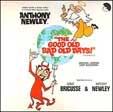 I saw Newley and Bricusses’ final play “The Good Old Bad Old Days” fifty three times. Don’t look for objectivity here!
I saw Newley and Bricusses’ final play “The Good Old Bad Old Days” fifty three times. Don’t look for objectivity here!
